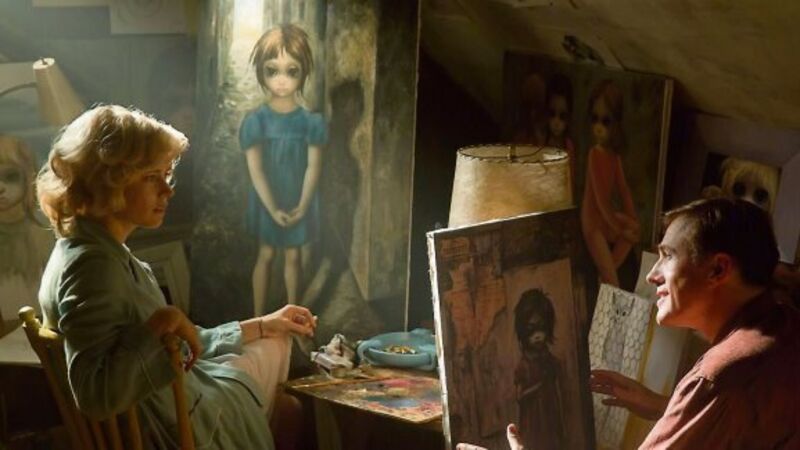Big Eyes wide open for Tim Burton’s tale of Margaret Keane

TIM BURTON is best known for taking viewers on extraordinary flights of gothic fancy, in films like Alice In Wonderland, Edward Scissorhands and Sweeney Todd. But his latest fantastical work is grounded in truth — which makes it even more alarming.
Big Eyes tells the little-known tale of American artist Margaret Keane, whose husband Walter took credit for her paintings of huge-eyed children in the late 1950s and early ’60suntil she finally fought for her name in court. A charismatic and canny businessman, Walter pioneered mass production of prints and made the Keanes very rich, at great personal cost to Margaret.











